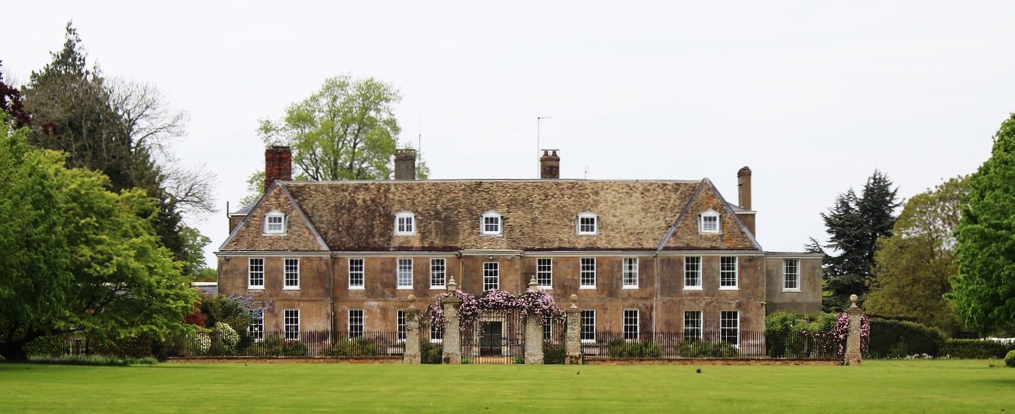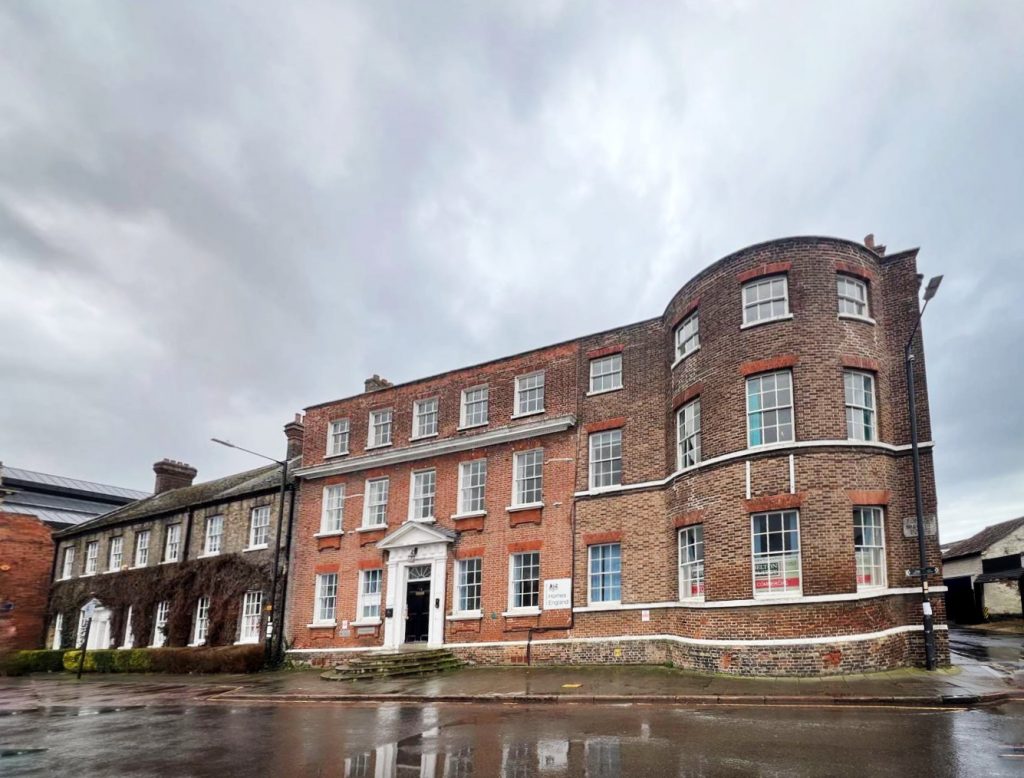For more than two centuries the Bagges were at the heart of King’s Lynn’s story. They brewed its beer, owned its ships, lent its merchants money, and served as mayors again and again. Yet today their name barely rings a bell. A few may recall Bagge Road in Gaywood, or know of Stradsett Hall near Downham Market, but the dynasty that once shaped so much of Lynn’s business, politics and property has quietly slipped from public memory.
The Bagge Family: Early Ambitions
The Bagges were no fly-by-night traders. They had roots in Norfolk villages as far back as the fifteenth century, modest landholders with an eye for opportunity. By the 1660s, one of them, John Bagge, had moved from Cockley Cley to King’s Lynn and set about enlarging the family’s brewing business. His home on King Street stood directly opposite the brewery yard, close enough to hear the clatter of barrels and smell the malt.
It was not genteel work, and the family’s social position reflected it. When a Bagge served as mayor in 1730, the Earl of Oxford dismissed him as “a mere brewer.” Yet within a generation they had confounded such snobbery. John’s grandson William Bagge married well, moved to a grand house on the Tuesday Market Place, and inherited Islington Hall through his wife. That single marriage shifted the family’s standing from prosperous tradesmen to local gentry – a transformation many aspired to, but few achieved. In 1768 William’s brother, Thomas, moved into 9 Nelson Street.

The Bagges: Ships, Inns, and Whales
By the mid-eighteenth century, William and his brother Thomas were restless entrepreneurs. The brewery prospered, but they wanted more. They ran a chain of inns, invested in ships, and took shares in vessels hauling coal from Newcastle and Sunderland. At one stage, they had interests in sixteen ships – no small achievement for a provincial port.
Then came a bolder gamble. In 1774 the Bagges put £1,014 into The Experiment, one of Lynn’s five Greenland whalers. Whaling was perilous but profitable, and the investment paid off. Thomas’s marriage to Pleasance Case, daughter of the influential customs official Philip Case, brought both money and influence, cementing the family’s place among Lynn’s elite. From that point on, the Bagges were as much financiers as brewers.
The Bagge Family: A Taste for Finance
Trade taught the Bagges a lesson that many merchants learned in the eighteenth century: the real power lay in money-lending. They financed shipping ventures and advanced loans to innkeepers and traders, securing their investments with ships, leases or property. When borrowers faltered, the Bagges showed no sentiment.
One telling case came in 1744. A publican named Pickering borrowed from the Bagges to buy three lighters (flat-bottomed barges). Years later, hard times forced him to sell them back to his creditors at a fraction of their worth. It was a small episode, but it revealed a pattern—quietly accumulating wealth through calculated risk and timely repossession.
Their growing confidence led to the creation of the Bagge & Bacon Bank in 1814, based on King Street. It survived barely a decade before being sold to the Everard family, yet its brief existence marks how far they had travelled from the small yard where John Bagge once stirred his mash.
The Bagge Family Spreads Its Wings
By the early nineteenth century, the Bagges were fixtures of Lynn life. Their properties spread across Lynn – houses in Nelson Street and the Tuesday Market Place, warehouses along the river, and grand halls at Gaywood, Islington and Stradsett.

Thomas Philip Bagge, who died in 1827, left eight children. Among them were the twins William and Richard, who steered the family into new worlds. William became MP for Lynn and was created a baronet in 1867, formal recognition that the family had entered the landed classes. Richard inherited Gaywood, where he demolished the medieval Bishop’s Palace to build a fashionable new house. Their younger brother Edward took over Islington Hall. In little more than two generations, the Bagges had travelled from coal barges and brewery vats to Westminster and the baronetage.
The Bagge Family: Victorian Respectability
Richard Bagge embodied the values of the Victorian gentleman. A loyal Conservative, he led the borough council, served as a magistrate and Deputy Lieutenant, and donated generously to local causes, notably the building of St John’s Church in 1846. His reputation for probity and public spirit helped the Bagges anchor themselves among Norfolk’s landed elite.
His son Thomas Edward Bagge carried that civic legacy forward, serving as mayor, chairing the gas company, acting as trustee of the harbour works, and governing the grammar school. By then, the family’s ambitions had evolved. Business was a means, not an identity. They saw themselves as stewards of the town’s welfare and examples of responsible prosperity.
The Bagges provided 13 of King’s Lynn’s mayors between 1751 and 1840. For some members their sense of civic duty continues to the present day. James Bagge was appointed High Sheriff of Norfolk in 2017 and acted as Deputy Lieutenant. James tried to win the parliamentary election in 2024 and unseat Liz Truss in the South West Norfolk constituency.
The Bagges: Decline and Dispersal
Not all the ventures prospered. The ship repair dock the Bagges opened at Friars Field in 1803 proved a costly misstep. Worse still, the town’s maritime fortunes were ebbing. Railways and the growth of deep-water ports like Hull and Grimsby drew away the trade that had sustained Lynn for centuries.
The brewery remained profitable for a time, and the family tightened their control by acquiring pubs across the town, sometimes using their influence as magistrates to block rivals’ licences. Yet the tide of history was turning. In 1929 they sold the brewery and seventy-five tied houses to Steward & Patteson of Norwich. Four years later Sir Richard Ludvig Bagge died, and with him went the last of the old order.
Gaywood Hall was sold; the estate became housing and part of the technical college. The Bagges, who had once dominated every sphere of Lynn’s civic life, faded into memory – surviving chiefly in road names and old deeds.
The Measure of the Bagges
The Bagges were not saints, nor were they villains. They were shrewd, pragmatic, and rarely sentimental about business. They married advantageously, moved from trade into land, and positioned their sons in careers that reinforced their standing. By the late nineteenth century, they were part of Norfolk’s establishment – entertaining royalty at Sandringham, and sending younger sons into the army, the church, and the diplomatic service.
If King’s Lynn has a family that captures the spirit of its rise from port to borough – from beer barrels and coal barges to Parliament and baronetcies – it is surely the Bagges. They began in the earthy world of brewing and ended among Norfolk’s landed elite, their story reflecting both the promise and the limits of social mobility in Georgian and Victorian England.
© This Version, James Rye 2025, with thanks to Lesley Short, King’s Lynn Town Guide, for generously making her research available.
Book a Walk with a Trained and Qualified King’s Lynn Guide
Further Reading
- Bagge, James – New Statesman Article https://www.newstatesman.com/the-weekend-interview/2024/05/james-bagge-interview-one-man-mission-unseat-liz-truss-south-west-norfolk
- Burke’s Landed Gentry (1952)
- Burke’s Peerage and Baronetage (2003)
- Hillen, H. J., History of the Borough of King’s Lynn (Forgotten Books)
- Kingsley, Nicholas, Landed Families of Britain and Ireland (2017)
- Pevsner, Nikolaus, The Buildings of England: Norfolk 2 (1999)
- Richards, Paul, King’s Lynn (Phillimore, 1990)
- Richards, Paul, “The Rise and Rise of the Bagge Family in King’s Lynn,” KL Magazine (July 2016)
- Short, Lesley, “The Bagge Family of King’s Lynn” (2021, unpublished typescript)
- Stirnet.com, Genealogy of the Bagge Family
- Wood, Frances, “Fuelling the Local Economy: The Fenland Coal Trade,” in From Family Firms to Corporate Capitalism (OUP, 1988)
